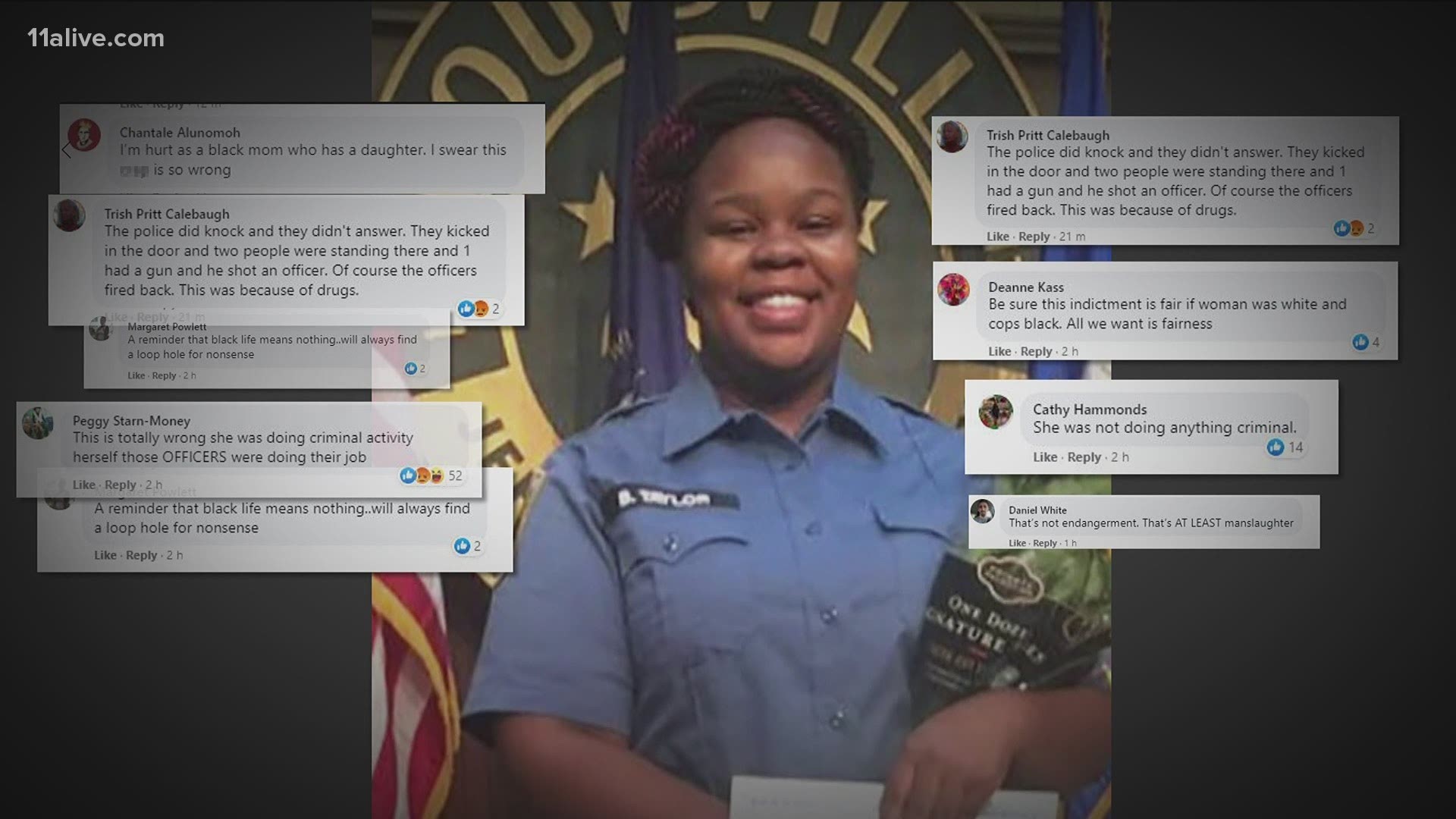ATLANTA — Breonna Taylor’s image and name were part of Atlanta protests over the summer, and are likely to return in renewed protests following the report of a Louisville grand jury.
On Tuesday, the Kentucky grand jury indicted one officer on a charge of wanton endangerment for firing rounds that went into neighboring apartments. But the panel declined to indict that same officer and the two others linked to the shooting, including the officer identified as the one who fired the shot that killed Taylor March 13.
Atlanta activist Taos Wynn looked at the indictment in Louisville and saw it as an opportunity missed by the Kentucky grand jury.
"I share in the sentiments of disappointment," said Wynn, who believes it’s impossible to justify as self-defense the police killing of Taylor during the late-night serving of a warrant at a Louisville apartment.
Wynn said the absence of a stronger indictment will likely renew the anger of activists in Atlanta and around the country.
"In terms of protests, in terms of voicing that - really their pain and frustration after months and months of seeking justice - to have the result that was given today, I think will be widely expressed throughout the country," Wynn predicted.
But the lack of a manslaughter or murder indictments in the Breonna Taylor case follows the law, argued Snellville attorney Mike Puglise. He’s a former Gwinnett county cop who represented Clayton County Sheriff Victor Hill when Hill faced a grand jury in a shooting case in 2015.
Louisville police "were serving a warrant and they were being shot at," Puglise said. "All the evidence that was provided by the witnesses was that shots were fired first by Breonna Taylor’s boyfriend. With that being said, these officers had every right to defend themselves and return fire."
Puglise agreed with the wanton endangerment charge against officer Brett Hankison "that shot blindly without identifying a target. And that’s a fundamental of policing. You have to identify your target. You don’t want to shoot blindly," Puglise said.
Puglise and Wynn agreed that the Breonna Taylor case presents opportunities for local police to reform some of their warrant-servicing practices, among other things.

